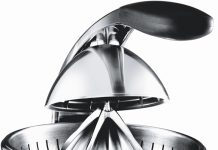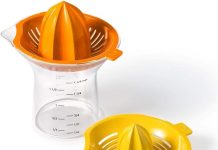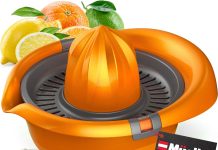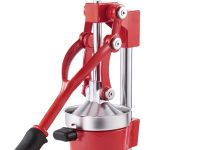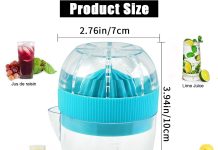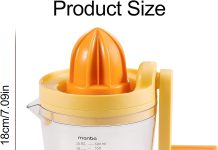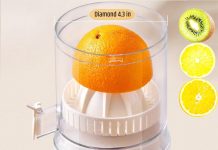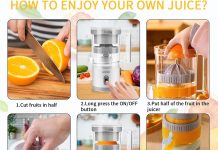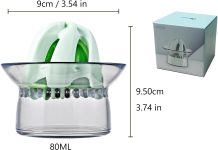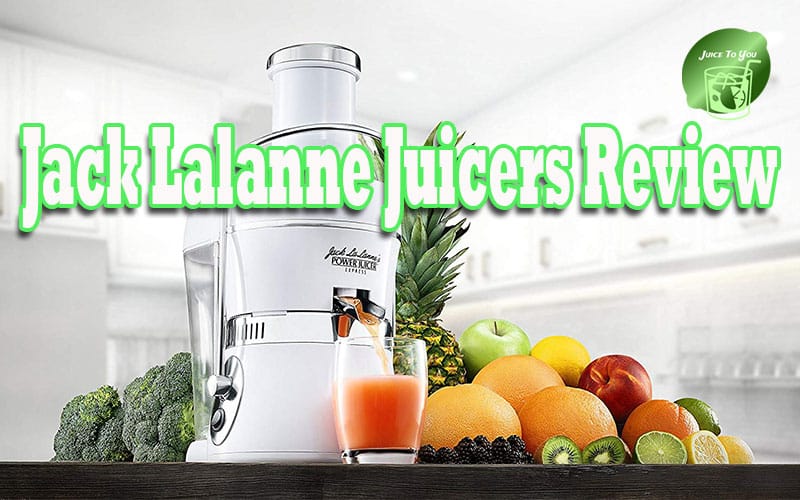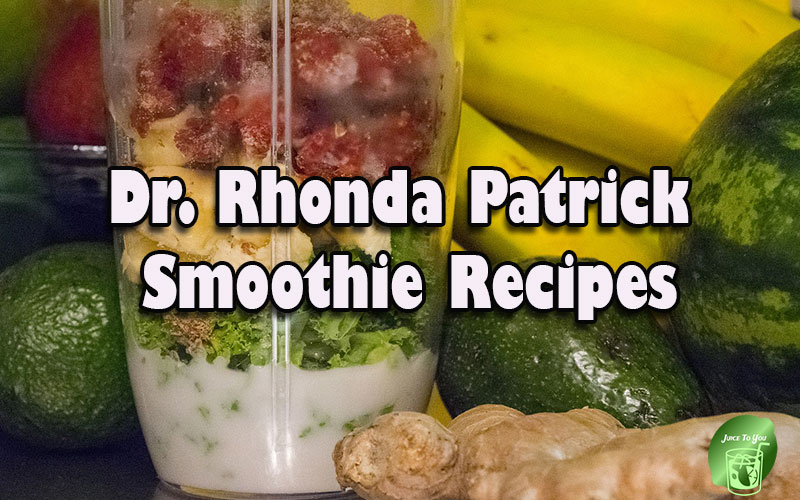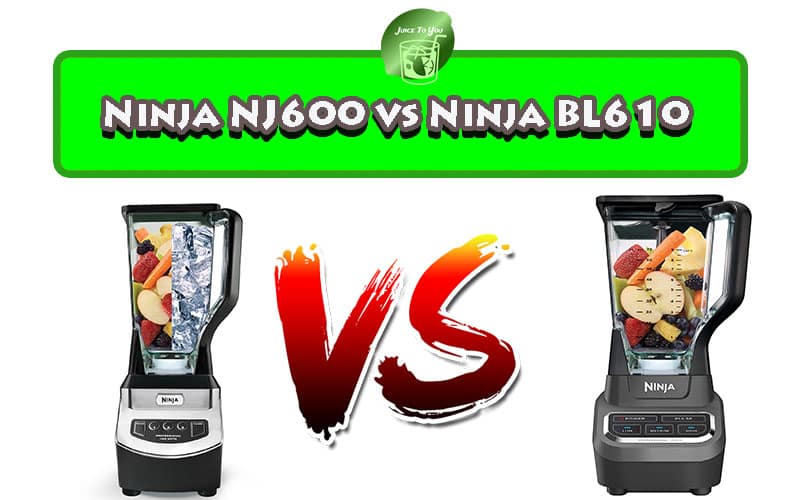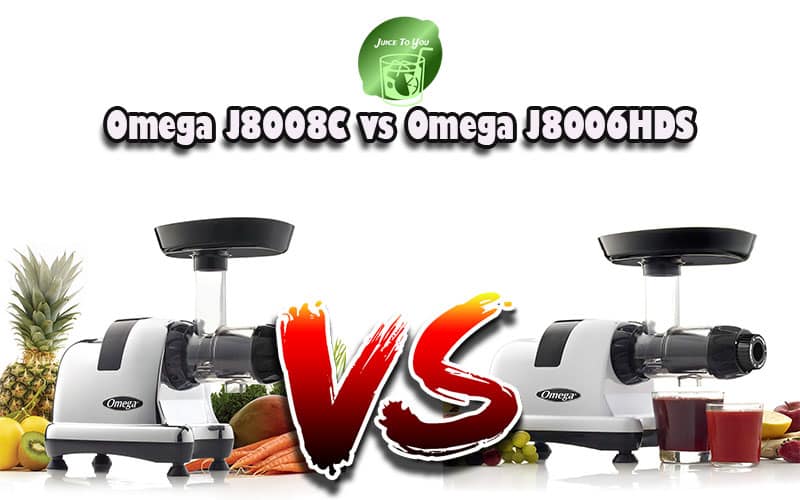When it comes to juicing, there is often a debate about whether plastic or glass is the better option. We all want to make sure we are getting the most nutrients and freshness from our favorite fruits and vegetables, but which material is more conducive to this process? In this article, we explore the benefits and drawbacks of plastic and glass juicing containers, helping you make an informed decision that will best suit your juicing needs.
Review contents
Plastic vs. Glass: An Overview of the Debate
When it comes to choosing between plastic and glass for juicing, there are several factors to consider. Both materials have their advantages and disadvantages, and the decision ultimately depends on individual preferences and specific needs. In this article, we will delve into the argument for plastic, highlighting its durability, cost, weight, and portability. We will also explore potential risks and concerns associated with plastic, such as chemical leaching, environmental impact, and longevity. On the other hand, we will examine the case for glass, emphasizing its preservation of nutrients, non-reactive and non-toxic nature, aesthetic appeal, and sustainability. Additionally, we will discuss the disadvantages of glass, including its fragility, heaviness, and cost. Finally, we will provide considerations for choosing the right juicing equipment based on factors like frequency of use, lifestyle, and budget. Throughout the article, we will refer to expert opinions and recommendations to provide a well-rounded perspective. By the end, readers will have a comprehensive understanding to make an informed decision on whether plastic or glass is better for juicing.
1. The Argument for Plastic
1.1. Durability
Plastic juicing containers are known for their durability. They are less susceptible to breakage than glass, making them a practical choice for those who prioritize longevity. Plastic juicers can withstand accidental bumps and drops, providing peace of mind, especially in busy households or commercial juicing settings. Furthermore, some high-quality plastics are resistant to staining and scratching, ensuring that the juicer remains in excellent condition even after prolonged use.
1.2. Cost
Cost is a significant factor to consider when purchasing juicing equipment. Plastic containers are generally more affordable than their glass counterparts. This lower price point makes plastic juicers accessible to a wider range of consumers, reducing the financial barrier to starting a juicing routine. Additionally, replacing plastic juicers due to wear and tear is less burdensome on the wallet compared to replacing glass alternatives.
1.3. Weight
Another advantage of plastic juicers is their lightweight nature. Plastic containers are significantly lighter than glass ones, making them more convenient to handle and transport. This aspect is particularly important for individuals who prioritize ease of use and require mobility. Plastic juicers are ideal for those who want to take their juicing routine on the go, whether it be to the office, gym, or on vacation.
1.4. Portability
In addition to being lightweight, plastic juicers offer excellent portability. Due to their durability and resistance to breakage, they can withstand the rigors of travel without the risk of shattering. Plastic containers are more practical for individuals who enjoy juicing during outdoor activities or for those who frequently travel and want to maintain a healthy lifestyle anywhere they go.
2. Potential Risks and Concerns with Plastic
2.1. Chemical Leaching
One of the primary concerns associated with plastic juicing containers is the possibility of chemical leaching. Certain types of plastic, such as low-quality or poorly manufactured ones, may release harmful substances into the juice when exposed to heat, sunlight, or prolonged use. These substances, such as BPA (bisphenol A), have been linked to various health issues. To mitigate this risk, it is crucial to choose high-quality, BPA-free plastics that are specifically designed for food contact.
2.2. Environmental Impact
Plastic waste is a pressing environmental concern. The production and disposal of plastic juicers contribute to the growing global plastic pollution problem. Plastics can take hundreds of years to decompose, and improper disposal can result in harm to wildlife, waterways, and ecosystems. Individuals concerned about their environmental footprint may prefer alternative options, such as glass juicers, which have a smaller ecological impact.
2.3. Longevity
While plastic juicers are generally durable, they may not last as long as glass juicers. Over time, plastic can become scratched, discolored, or warped, affecting its performance and aesthetics. This can result in the need for more frequent replacements, leading to increased waste and expenses. Those who prioritize long-term investment and sustainability may consider glass as a more durable option.
3. The Case for Glass
3.1. Preservation of Nutrients
Glass juicers are often favored for their ability to preserve the nutrients in fresh juices. Unlike plastic, glass does not interact with the juice, preventing any potential chemical leaching. This non-reactive nature ensures that the taste, quality, and nutritional value of the juice remain intact. Glass containers are an excellent choice for individuals who prioritize maximizing the health benefits of their juicing endeavors.
3.2. Non-reactive and Non-toxic
Glass is considered a non-reactive and non-toxic material, which means it does not release chemicals or substances into the juice. This aspect ensures purity and safety, making glass juicers an attractive option for those who prioritize health and want to minimize potential exposure to harmful elements. Glass containers provide peace of mind, knowing that the juice remains uncontaminated and safe for consumption.
3.3. Aesthetically Pleasing
Glass juicers often have an undeniable aesthetic appeal. The transparency and clarity of glass enhance the visual experience of juicing, allowing users to appreciate the vibrant colors and textures of their creations. Glass containers can be elegant additions to any kitchen or dining table, elevating the overall presentation and enjoyment of freshly squeezed juices.
3.4. Sustainability
Glass is a highly sustainable material. Unlike plastic, it is 100% recyclable and can be reused indefinitely without losing quality. When properly recycled, glass can be transformed into new products, reducing the demand for raw materials and energy consumption. This aspect makes glass juicers an eco-friendly choice for those striving to minimize their environmental impact.
4. Disadvantages of Glass
4.1. Fragility
The fragility of glass is perhaps the most significant drawback when considering glass juicers. Glass containers are susceptible to breakage when subjected to accidental impacts or dropped. This fragility can pose a safety hazard, particularly if glass shards are involved. Therefore, extra care must be exercised when handling and storing glass juicers.
4.2. Heavier and Bulkier
Compared to plastic, glass juicers are heavier and bulkier. This aspect can make them less convenient for individuals who prioritize ease of use, portability, and storage. The added weight and size of glass containers may also limit their practicality for those with physical limitations or limited counter space in their kitchens. It is essential to consider the trade-off between durability and convenience when deciding between plastic and glass.
4.3. Cost
Glass juicers tend to be more expensive than plastic alternatives. The higher production and material costs associated with glass contribute to this price difference. However, it is important to note that glass juicers, if handled with care, can potentially last longer than plastic ones, providing long-term cost savings. Individuals with a larger budget or who prioritize durability and sustainability may be more willing to invest in glass juicers.
5 Considerations for Juicing Equipment
5.1. Frequency of Use
When choosing between plastic and glass juicers, it is crucial to consider the frequency of use. If juicing is a daily or regular practice, durability becomes a significant factor. Plastic juicers, with their resistance to breakage and wear, may be more suitable for individuals who plan to use and clean their juicers frequently. On the other hand, occasional juicers may find glass juicers more appealing due to their long-term investment potential and nutrient preservation capabilities.
5.2. Lifestyle and Individual Needs
An individual’s lifestyle and specific needs also play a vital role in determining the appropriate juicing equipment. For those constantly on the go or who require portability, lightweight and durable plastic juicers may be the better choice. Conversely, individuals who prioritize health, sustainability, and aesthetic appeal may opt for glass juicers. It is crucial to evaluate personal preferences and habits when making this decision.
5.3. Budget
Budget is an essential consideration for many when purchasing juicing equipment. Plastic juicers are typically more affordable upfront, making them attractive to those on a tight budget. However, it is important to weigh the long-term costs associated with potential replacements and the environmental impact of plastic waste. Glass juicers, while initially more expensive, may offer greater value in terms of durability, health benefits, and sustainability.
6. Expert Opinions and Recommendations
We reached out to several experts in the health and nutrition field to get their insights on the plastic vs. glass juicing debate. The consensus among experts is that while both plastic and glass juicers have their advantages and disadvantages, glass is generally favored for its non-reactive and non-toxic properties, preservation of nutrients, and sustainability. However, experts also acknowledge that plastic juicers can be a practical and cost-effective option for those with specific needs, such as portability and durability. It is crucial to consider individual circumstances and priorities when making a decision, and consulting with a nutritionist or expert can provide valuable guidance.
7. Conclusion
In conclusion, the debate between plastic and glass juicers boils down to personal preferences, priorities, and specific needs. Plastic juicers offer advantages in terms of durability, cost, weight, and portability. However, potential risks and concerns associated with plastic, such as chemical leaching, environmental impact, and longevity, should not be overlooked. Glass juicers excel in nutrient preservation, non-reactivity, aesthetic appeal, and sustainability. However, they have drawbacks related to fragility, weight, and cost. Considerations such as frequency of use, lifestyle, and budget should guide the decision-making process. Overall, it is important to strike a balance between convenience, health benefits, and environmental impact. By carefully weighing the pros and cons of plastic and glass juicers and considering expert opinions, individuals can make an informed choice that aligns with their values and enhances their juicing experience.


